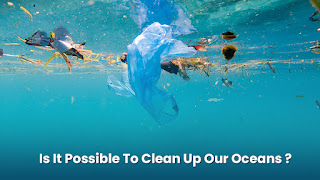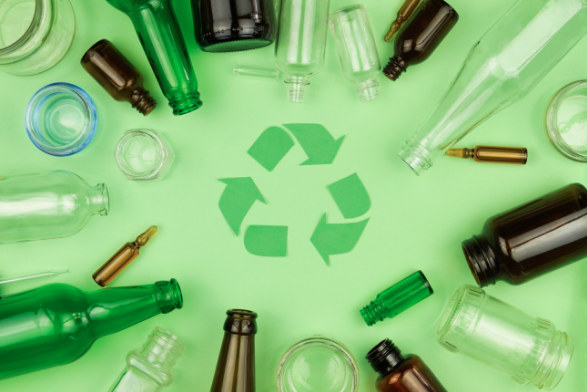
Yes, it is possible to rid our oceans of plastic waste. Ocean pollution accounts for 150 million metric tons of plastics and on top of it, 8 million metric tons of plastics are added annually. Marine life is heavily impacted due to the waste accumulating in their habitat, disturbing a major chunk of the ecological sphere. To address the issue, the ocean clean-up project got behind the task. They have planned to rid the ocean of the waste accumulated within a decade or more. However, if we continue to produce waste at the same rate, it will not help any such projects to come to a conclusion. Moreover, it isn’t a task for one. There are many ways the current technology can enable innovators and entrepreneurs around the world to make this process more efficient and scalable.
How Does Plastic End Up In The Oceans?
Life exists in a complete full circle. Washing your hands might wash away the tiny plastic particles stuck to you from your daily life. The same single-particle from that water might end up coming back to you, one way or another. That is how nature behaves in a domino-effect. Similarly, the waste we produce on our daily basis eventually ends up getting dumped at landfills or rivers. From rivers, the waste is carried with the flow towards the seas and from there the water currants steer it into the oceans. It is estimated that 80% of all the waste in the oceans originated from land. This waste is present in all shapes and sizes. Much of it is not even visible to the naked eye. These are known as microplastics and they can easily leave aquatic life compromised. Therefore, the waste we may discard today is going to come back to us in the face of a marine life crisis. It is for our own sake that we produce minimal waste, and reuse and recycle as much as possible.
Impact of Ocean Pollution on Marine Life
All that waste accumulated in the oceans is causing a major threat to marine life. Recent research indicated that the ratio of plastic to plankton in the waters may be as high as 46:1, threatening starvation of fish, marine birds, and mammals that mistakenly ingest tiny pellets of plastic that resemble food. Moreover, due to the plastic debris, many aquatic lives end up injuring themselves as well. That is how marine life is compromised as it dies due to choking and consuming plastic. We are completely unaware of the number of animals & fishes killed due to marine pollution so far. However, experts have observed a sharp decline in the population of many prominent sea creatures. Therefore, non-profit organizations are making efforts to prevent any of them from falling into extinction.
More Info : Recycling Companies in Dubai


No comments:
Post a Comment